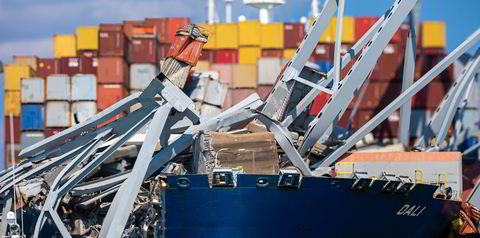Shipowners must be able to supply detailed information on costs linked to Russian oil cargoes within 30 days of loading or risk losing their protection and indemnity cover, according to new guidance.
P&I clubs can ask for information relating to costs including customs, packaging, port service charges and separate insurance if they are concerned that Russian oil is being hauled above the price cap, according to a circular to members by the West of England P&I Club.
They will have to be supplied within 30 days of loading, but shipowners should consider “ensuring a right to such information within a much shorter timescale” to ensure they remain on the right side of the rules imposed by the G7 group of countries.
The price caps are designed to limit revenues for the Kremlin to fund its war on Ukraine, while allowing global oil to flow, to keep the lid on rising prices.
Countries including the US, UK and European Union issued guidance last week as part of a crackdown on the price cap policy amid concerns over widespread evasion. The US has blacklisted 26 ships since October because of accusations of price cap breaches.
The new guidance, which comes into force from 19 February, includes tightened rules on providing attestation documents that show cargoes are being carried below the levels of $60 per barrel cap for crude and $100 and $45 for refined products that were set in December 2022 and February 2023.
The forms must be provided for every voyage, according to the bulletin sent by the West and other P&I clubs to members. Annual attestations covering a series of shipments are no longer acceptable, it said. Any ship-to-ship oil transfers would require further attestation.
Attestation forms should be secured before loading and after completing necessary due diligence checks to show that the papers are legitimate.
The G7 has warned that the billing of “commercially unreasonable” or opaque shipping costs should be seen as a sign of price cap evasion.
“Unless the attestation is received before loading, the shipowner will not have comfort that the cargo is price cap compliant,” the guidance says.
The forms then must be provided to P&I clubs within 30 days.
Owners also must gather itemised information on “ancillary costs” that have to be supplied to clubs within 30 days, if requested.
Critics of the price cap scheme have said the existing system allows for the true cost of barrels to be disguised by adding inflated shipping costs. Demands for itemised costs are seen as a way of blunting that tactic.
Tony Paulson, head of Asia and corporate director for the West, said that members should ensure their contracts include the right to such timely information.
“If members fail to do so, this may affect their ability to discharge their own information obligations to their club, and potentially jeopardise their P&I cover,” he wrote.
“Members can expect such a request for itemised price information where the club does not have sufficient comfort that the requirements of the price cap scheme have been complied with, or in response to a request from a relevant authority.”
He said these concerns could have come from the club’s own due diligence or following a request from a regulator.
The G7 guidance also points to new rules introduced by the EU on providing backdated details of sales of secondhand tankers to buyers outside of the bloc.
It highlights the role of flag states in notifying authorities of ships that have been deregistered because of price cap breaches.
Read more
- Russian petroleum exports plummet as refineries go offline for repairs
- Shipowners hail ‘pragmatic’ levy scheme for green fuel incentives
- UK sanctions efforts ‘disturbing’ as Russia evades price caps
- Greek shipowners withdraw from Russia crude trade over sanctions fears
- West Africa fuel demand boosting LR2 tankers as ships divert from Red Sea, BRS says





